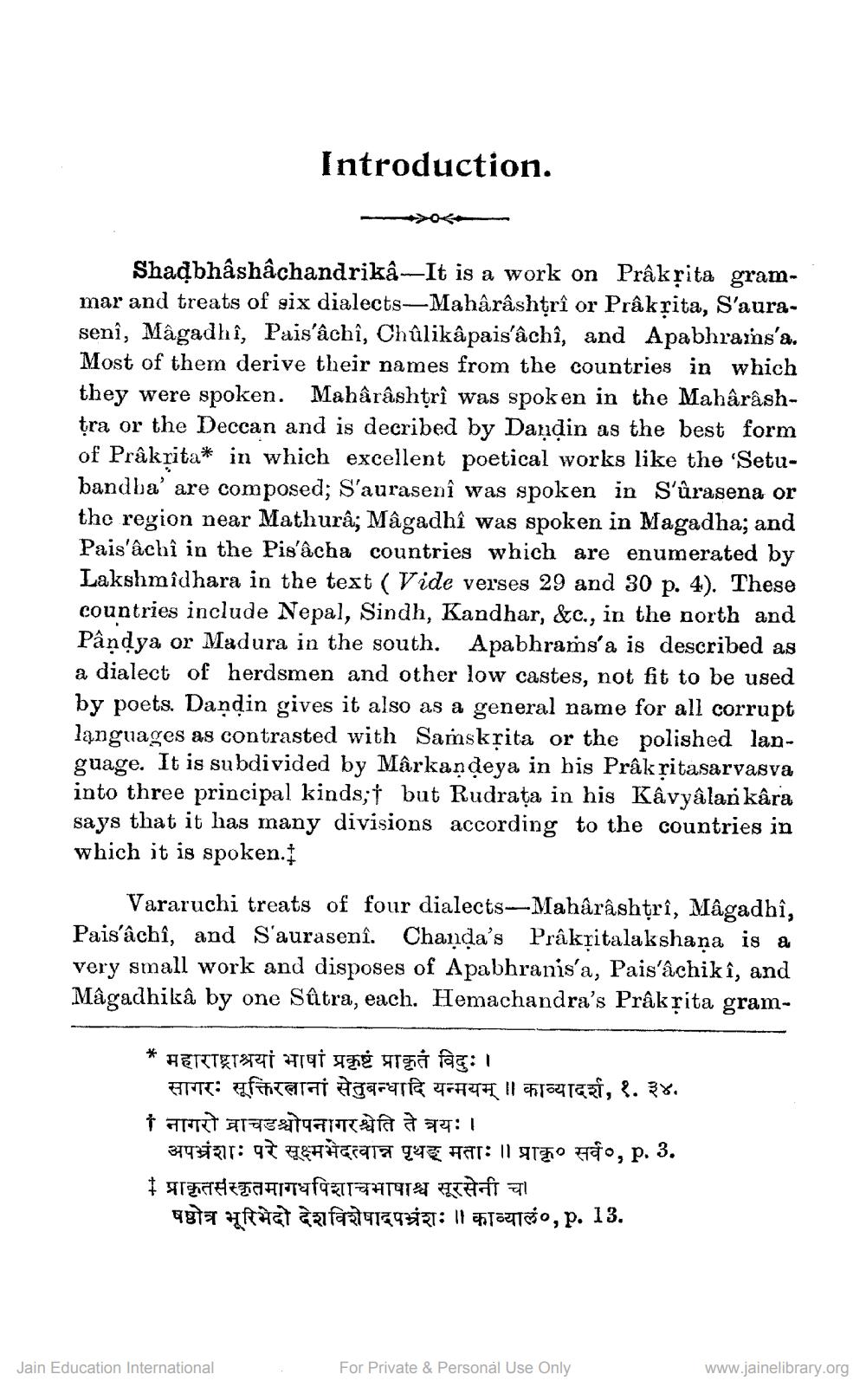________________
Introduction.
Shadbhâshâchandrikâ--It is a work on Prâkrita grammar and treats of six dialects—Mahârâshtrî or Prâkrita, S'aurasenî, Mâgadhi, Pais'âchî, Chûlikâpais'âchî, and Apabhrais'a. Most of them derive their names from the countries in which they were spoken. Mahârâshtrî was spoken in the Mahârâshtra or the Deccan and is decribed by Dandin as the best form of Prâkrita* in which excellent poetical works like the 'Setubandba' are composed; S'aurasenî was spoken in Sûrasena or the region near Mathurâ; Mâgadhî was spoken in Magadha; and Pais'âchi in the Pis'âcha countries which are enumerated by Lakshmîdhara in the text (Vide verses 29 and 30 p. 4). These countries include Nepal, Sindh, Kandhar, &c., in the north and Pândya or Madura in the south. Apabhrams'a is described as a dialect of herdsmen and other low castes, not fit to be used by poets. Dandin gives it also as a general name for all corrupt languages as contrasted with Samskrita or the polished language. It is subdivided by Mârkandeya in his Prâkritasarvasva into three principal kinds;Ť but Rudrata in his Kâvyâlan kâra says that it has many divisions according to the countries in which it is spoken. I
Vararuchi treats of four dialects-Mahârâshtrî, Mâgadhî, Pais'âchỉ, and Saurasenî. Chanda's Prâkțitalakshana is a very small work and disposes of Apabhranis'a, Pais'âchikî, and Mâgadhikâ by one Sûtra, each. Hemachandra's Prâkrita gram
* महाराष्ट्राश्रयां भाषां प्रकृष्टं प्राकृतं विदुः।
सागरः सूक्तिरलानां सेतुबन्धादि यन्मयम् ॥ काव्यादर्श, १. ३४. नागरो वाचडश्चोपनागरश्चेति ते त्रयः ।
3113: TEHT91 Tak Har: 11 412 , p. 3. + प्राकृतसंस्कृतमागधपिशाचभाषाश्च सूरसेनी च। 981 faat dafaat4igaz: 11 Tauco, p. 13.
Jain Education International
For Private & Personal Use Only
www.jainelibrary.org




